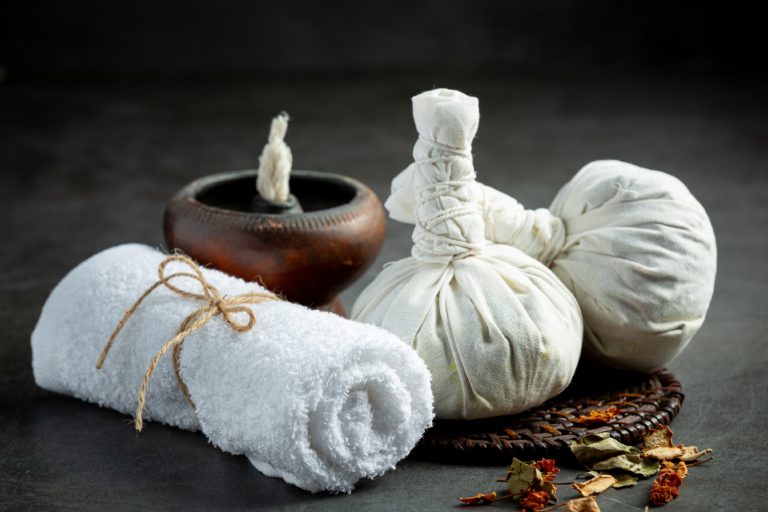Vertigo, a sensation of spinning, dizziness, or loss of balance, often results from inner ear disorders. Conventional treatment methods may not always provide long-lasting relief, prompting many to explore alternative therapies. One such approach is Ayurveda, an ancient holistic healing system from India. Ayurvedic treatments offer a gentle, natural, and effective way to manage vertigo and restore balance. In this article, we’ll explore the Ayurvedic approach to vertigo relief and discuss how it can help those suffering from inner ear disorders.
Understanding Vertigo and Inner Ear Disorders
To better appreciate the Ayurvedic approach to vertigo relief, it’s essential to understand the condition and its underlying causes. Vertigo can result from various factors, including:
● Benign paroxysmal positional vertigo (BPPV)
● Meniere’s disease
● Vestibular neuritis
● Labyrinthitis
These conditions affect the inner ear’s delicate structures, leading to symptoms like dizziness, imbalance, and nausea. As inner ear disorders often involve complex interactions between various body systems, a holistic approach like Ayurveda can be especially beneficial.
Ayurveda’s Perspective on Vertigo
Ayurveda attributes vertigo to an imbalance in one or more of the three fundamental energies, or doshas (Vata, Pitta, and Kapha). In particular, vertigo is often associated with aggravated Vatadosha, which governs movement, balance, and the nervous system. Restoring balance to the doshas is the primary aim of Ayurvedic therapies for vertigo relief.
Ayurvedic Therapy for Vertigo Relief
Ayurveda offers a variety of treatment modalities to alleviate vertigo symptoms and address underlying imbalances. The Treatment for vertigo in Ayurveda typically includes:
a. Diet and Lifestyle Changes
● Favour warm, grounding, and nourishing foods
● Avoid cold, dry, and excessively sweet or spicy foods
● Maintain a regular daily routine
● Get sufficient sleep and avoid overstimulation
b. Herbal Remedies
● Ashwagandha: Strengthens the nervous system and reduces stress
● Brahmi: Enhances cognitive function and improves circulation to the brain
● Ginger: Reduces inflammation and alleviates nausea
● Ginkgo Biloba: Improves blood flow to the inner ear and reduces vertigo symptoms
c. Ayurvedic Massage (Abhyanga)
● Stimulates circulation and balances the nervous system
● Enhances lymphatic drainage, reducing inflammation and congestion
● Helps to ground and stabilise the Vatadosha
d. Nasya Therapy
● Administration of medicated oils or herbal powders through the nasal passage
● Clears the sinuses and improves the functioning of the inner ear
● Balances the Vatadosha, particularly in the head and neck regions
e. Shirodhara
● A continuous stream of warm oil is poured gently onto the forehead
● Calms the nervous system, reduces stress and stabilizes the Vatadosha
● Can help relieve vertigo symptoms related to anxiety or stress
f. Yoga and Pranayama
● Specific yoga postures can help improve balance and coordination
● Pranayama (breathing exercises) can calm the mind and reduce stress-related vertigo symptoms
Preventing Vertigo with Ayurveda
While Ayurvedic therapy can help alleviate vertigo symptoms, prevention is always better than cure. Incorporating Ayurvedic principles into your daily life can help maintain balance and prevent imbalances that lead to vertigo. Here are some tips:
● Stay Hydrated: Drinking sufficient water helps maintain fluid balance in the body, reducing the risk of dehydration, which can contribute to vertigo.
● Follow a Balanced Diet: Enjoy warm, nourishing, and easily digestible foods while avoiding cold, heavy, and greasy foods that can aggravate the Vatadosha. Incorporate herbs and spices like ginger, cumin, and coriander, which promote digestion and reduce inflammation.
● Practice Yoga and Meditation: Regular yoga and meditation practice can help balance the mind and body, reducing stress and anxiety-related vertigo symptoms. Incorporate postures that focus on balance and stability, such as tree pose (Vrikshasana) or triangle pose (Trikonasana).
● Get Enough Sleep: Aim for 7-8 hours of sleep every night, as adequate rest helps the body restore balance and heal.
● Manage Stress: Chronic stress can lead to imbalances in the Vatadosha, increasing the risk of vertigo. Incorporate stress-reducing practices like deep breathing, mindfulness, or relaxation techniques.
By adopting theseAyurvedic practices into your daily routine, you can maintain balance and prevent imbalances that lead to vertigo, enhancing your overall health and well-being.
Benefits of Ayurveda for Vertigo
Ayurveda offers many benefits for managing vertigo and inner ear disorders. The Ayurvedic approach is holistic, focusing on restoring balance to the body’s systems and addressing the underlying causes of vertigo symptoms. Here are some of the benefits of Ayurveda for vertigo relief:
● Gentle and natural: Ayurvedic therapies are gentle and non-invasive, using natural remedies such as herbal remedies, dietary changes, massage, and yoga to restore balance to the body. Unlike conventional treatments, Ayurveda aims to address the root causes of vertigo symptoms rather than just suppressing them.
● Personalised treatment: Ayurveda recognises that each individual is unique, and treatment plans are tailored to the patient’s constitution, medical history, and lifestyle. This personalised approach ensures that patients receive the most appropriate and effective treatment for their condition.
● Holistic approach: Ayurveda treats the body as a whole, recognising the complex interactions between the body’s systems. Rather than just addressing the symptoms of vertigo, Ayurvedic treatment aims to restore balance to the patient’s body and mind, promoting overall health and well-being.
● Improved digestion: Many Ayurvedic remedies for vertigo involve improving digestion and reducing inflammation in the gut. This approach can help improve the absorption of nutrients and reduce the risk of imbalances that contribute to vertigo symptoms.
● Stress reduction: Ayurveda recognises that stress can contribute to vertigo symptoms and incorporates stress-reducing techniques such as meditation, yoga, and breathing exercises into treatment plans. These techniques can help reduce stress and promote relaxation, helping to alleviate vertigo symptoms.
● Increased circulation: Many Ayurvedic treatments involve improving circulation to the inner ear and brain, reducing inflammation and congestion, and promoting healing. Improved circulation can help reduce vertigo symptoms and promote overall health and well-being.
● Fewer side effects: Unlike conventional treatments, Ayurvedic therapies have few side effects when used correctly. Patients can expect gentle and natural remedies that have been used for centuries to manage vertigo symptoms effectively.
By incorporating Ayurvedic therapies into their treatment plan, patients with vertigo can enjoy natural, gentle, and effective relief from symptoms, promoting overall health and well-being.
Takeaway
Vertigo and inner ear disorders can be challenging to manage, often impacting one’s quality of life. Ayurvedic therapy offers a holistic, gentle, and effective approach to alleviate vertigo symptoms and address the root causes of imbalance. By incorporating dietary changes, herbal remedies, therapeutic massages, and other Ayurvedic treatments under the guidance of a qualified practitioner, you can find lasting relief from vertigo and regain a sense of balance and well-being.
While Ayurveda offers a gentle and natural approach to vertigo relief, it’s essential to consult a qualified Ayurvedic practitioner before beginning any treatment. They can provide personalised recommendations based on your unique constitution and the underlying causes of your vertigo. If you are looking for Ayurveda treatment in Kerala for vertigo, Ishani Ayurveda is the best place to be.





